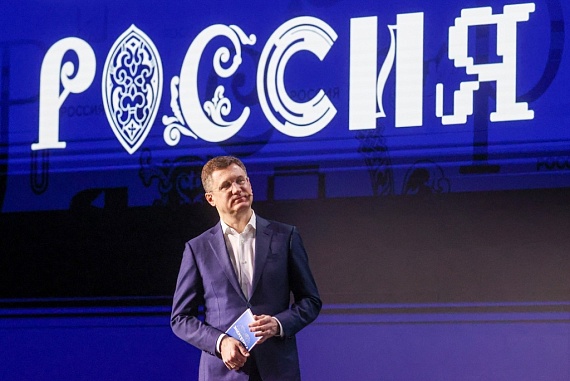
The
plenary session ‘Leadership and Sustainability of the Russian Energy Sector’ was
held at the international RUSSIA EXPO, kick starting the National Achievements
Forum theme day. Session participants discussed what the industry has achieved,
and the role played by the regions in its achievement.
According
to Russian Deputy Prime Minister Alexander Novak, the energy industry is one of
the Russian economy’s most important sectors, and over the past 20 years it has
developed in significant ways.
“This
economic growth is the result of Russian President Vladimir Putin’s personal efforts,
and it has the industry seeing its greatest performance in 20 years. The sector
amounts to approximately 20% of Russian GDP. It accounts for around 60% of
exports and 30% of federal budget revenue,” Novak said.
The
greater part of Russian exports belongs to oil, and Russia accounts for 10% of
its global production. Roughly two thousand deposits are being developed in the
country. At the same time, according to the Deputy Prime Minister, oil is
becoming more difficult to reach, for which reason the Russian Government is
supporting the industry and providing assistance in the development of offshore
deposits and production in Eastern Siberia. The development of new deposits
entails the development of the industry as a whole, including oil refining,
and, according to Novak, Russia is now faced with the task of achieving
technological sovereignty in the oil industry.
Natural
gas is no less important to the nation. Russia is the world’s second-largest
producer and exporter of this resource, and the Deputy Prime Minister emphasized
that connecting the unified gas supply system to the system in the east was a priority
of historical proportions.
“Doing so
will improve the reliability and efficiency of the industry, develop new deposits,
and ensure further development of gas infrastructure,” Novak said.
Another area
of importance is the production of liquefied natural gas. According to the Deputy
Prime Minister, Russia has moved from zero to fourth place globally in this
market, with production at 31.5 million tonnes.
“The
President has set us the task of achieving at least one hundred million tonnes
of liquefied natural gas production by 2035. It is an ambitious task and one
that requires the development of LNG production clusters in Yamal, Sakhalin,
and the Baltic. Our goal is to claim at least 15–20% of the global LNG market,”
Novak said.
In
addition to global markets, Russia is on its way to becoming one of the most developed
countries in the world in terms of gas infrastructure, with current levels at
73.8%, expected to reach 83% by 2030, according to the Deputy Prime Minister.
There
continues to be a demand for coal production in Russia. Despite all forecasts,
coal now accounts for 30% of the global energy balance. Russia ranks fifth in
coal production, with 438 million tonnes in 2023, and the Kemerovo Region
accounts for more than half of that, though new centres are being developed in
the Far East and Siberia.
“A
programme has been approved for the development of the coal industry, and it
includes a major focus on the development of modern coal mining technologies. Your
modern coal mine is essentially an underground factory: highly mechanized,
highly productive, and equipped with modern technologies. We will continue to
develop our coal industry in this direction. The key to success is modern
technologies and the development of the coal chemical industry,” Novak said.
Electricity
accounts for a major part of Russia’s energy economy. One and a half million
people are employed in the industry, with half of those making energy. System
capacity is approximately 255,000 megawatts, with 86% from clean energy
sources, which exceeds the global average. Additional demand currently stands
at roughly 4,000 megawatts.
“We are
talking about new generation in Krasnodar, Crimea, Siberia, and the Far East
that will connect new consumers and further the country’s economic potential,” the
Deputy Prime Minister said.
Novak also spoke at length about the
petrochemical industry, noting its continued growth and Russia’s emergence as
an exporter in the area.
The
session was attended by regional heads, with Governor of the Khanty-Mansiysk
Autonomous Region Natalia Komarova, Governor of the Yamalo-Nenets Autonomous Region
Dmitry Artyukhov, Governor of the Krasnoyarsk Territory Mikhail Kotyukov,
Governor of the Murmansk Region Andrey Chibis, Governor of the Kemerovo Region
Sergey Tsivilev, and Head of the Republic of Tatarstan Rustam Minnikhanov all
speaking about the role of the energy economy in the development of the
constituent entities.
The Forum is being organized by the Government of the
Russian Federation, the Ministry of Energy of the Russian Federation, and the
Directorate of the Exhibition of Russia’s Achievements. The operator is the
Roscongress Foundation.






